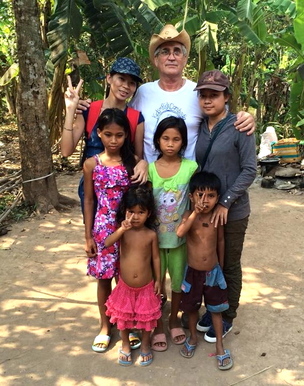
“America.”
“Me too,” I said. My gut told me to keep going. “Where in the U.S.?”
“Connecticut,” the man said. Oh boy.
“Wait – let me guess,” I stopped him. He was definitely blue collar, an Italian Pisano, but had the tan and silver hair of someone with a touch of the good life. Just enough.
“Not Fairfield,” I guessed, “How about Milford?”
“Yeah – how did you know that? Well, I grew up in Trumbull and lived in Milford for a while but now West Haven.”
What are the odds? I’m eating breakfast at the bar beneath my hotel in Cambodia and I end up sitting next to a gentleman who lives next to my hometown in Connecticut, a world away. Or used to live. He introduced himself as Bart and explained that he now spent most of his time in Cambodia, working with the NGO he founded. (NGO stands for Non-Governmental Organization, or basically a charity – something you hear every day in this impoverished country.) We chatted for a while about how Kids At Risk Cambodia helps orphans throughout the country.
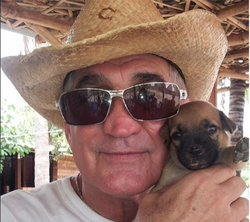
I politely declined. I was so behind on work, had woke up late, and it was already blazing hot out. But then, I remembered that most great things happen when it’s least convenient. I didn’t want to go, but I couldn’t NOT go.
So, when the Cambodian med students showed up, two smiling women in they’re mid 20’s wearing jeans and sweatshirts despite the heat, I grabbed my backpack and headed out with our new crew. We crammed into a tuk tuk, two wooden benches under an open roof pulled by a motorcycle. Including me, Cowboy, his girlfriend (who we called Cowgirl,) the two med students, and the driver, we had six people powered by one pre-war motorcycle as we headed through the bustling streets of Phnom Penh toward dirt roads, rice fields, and dense palm tree jungle.
As we bumped and rattled our way through smaller towns, Khmer farmers and shop patrons staring at the unusual site of 6 people including two big farang (foreigner) faces, and supplies packed into one tuk tuk, Cowboy told me the girl’s story.
Years back, he’d gone out to do some work in their province for some reason and when he met with the villagers he noticed there were two little girls always tagging along, filthy and dressed in rags. He asked Simon, his trusty tuk tuk driver and defacto interpreter, about them. Simon told him they were orphans. Both their parents were dead and they had no one else to look after them.
“How did they eat?” Cowboy asked.
“The villagers give them extra food and scraps when they can,” Simon said.
“Where do they stay?” Cowboy asked.
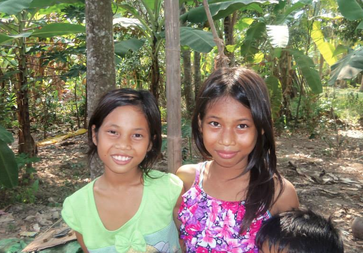
Through Simon and the villagers, Cowboy tried to help, offering some rice and a little money when he could. But the girl’s situation got worse – when the village fell on hard times and there was not enough to eat, one girl was sent way out to the remote northern provinces to stay with a distant relative. The sisters were split up. Jenny was sent to an area in the jungle so isolated that she had no other children as friends – she had to play with monkeys every day. She missed her sister terribly and her life was hard. Her loneliness was worse than hunger.
But there are always problems in Cambodia. Desperate poverty is not just based on circumstances, but poverty of the mind. He built a huge teepee-like new home for the family who was housing the girls, but when he came back months later they’d torn it down to sell the scrap metal. The room the girls were supposed to stay in was now inhabited by up to a dozen people, and sometimes the girls were forced to sleep on their platform outside again.
Clean water is always a challenge. Too often, they go to the bathroom right outside in the bush but collect their drinking, cooking, and bathing water from nearby sources. So Cowboy had a concrete outhouse built and arranged for them to use the neighbor’s well water. But with so extra people now living there, they were using too much water and the neighbors were threatening to cut them off.
So it was important Cowboy made an appearance, with Simon, to visit the girls as often as possible. He could try to smooth out problems, make sure the girls were eating well and no one was pocketing their food money, insist they get to sleep indoors in the room he was renting, and check to see they were going to school every day and not sent out into the fields to pick mangoes. Of course, Keep Calm and Keep Hope coming along was a blessing, the only medical care the sisters might see that year.
A sad reality in Cambodia is that girls get snatched up all the time by sex traffickers, or sometimes even sold by their starving families. The girls are coming of age and very pretty, so Cowboy and the med students are concerned – they urge their relatives to keep a very close eye on them. In the long term, education is the only way to empower them with a better life. By attending school and learning English their ceiling will be much higher than a farmer or homemaker, so they may grow up to be advocates, themselves, helping the next generation and reversing the cycles of poverty.
For that reason, Cowboy really appreciated Keep Calm and Keep Hope coming along. More than just medical checkups, they can talk to the girls in Khmer and find out the real story what’s going on in their lives and if they’re having problems. You can’t underestimate the value of two Cambodian women who are educated, independent professionals taking the time to personally visit the girls. It gives them hope and something to reach for in life, recalibrating their possibilities.
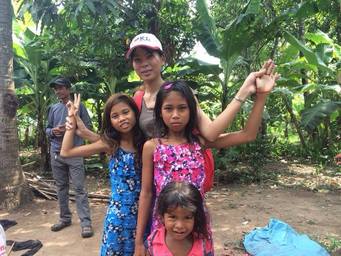
The children quickly flocked to me and I picked them up and twirled them around and threw them in the air. Of course, there were a dozen kids to pick up and play with and they didn’t want me to stop, so I was soon sweating like crazy under the blazing jungle sun. There was no escaping the heat – somehow it felt 20 degrees hotter than in the city an hour away. It was so hot, their babies didn't even cry. Mercifully, they set up one dilapidated old fan and we sat in the shade and ate the mangos they prepared.
On the walk home, the kids held on to our plastic bags of supplies from the store like they were gold. It’s so rare they get anything or have any new possessions that they play with them and want to hold them, just out of novelty. One village girl held on to a pig stuffed animal and wouldn’t let go of it all afternoon. After drinking an iced tea, the sister who wasn't feeling well started gagging. She ran into the bush and threw up.
The medical students mixed the talcum powder into a paste and applied it to rashes, cut fingernails, and checked their eyes and mouths for signs of worms, dengue, or other ailments. But mostly, they were just happy, smiling kids – eager to jump all over their new Western friend.
The sisters gave me one last big hug before I climbed aboard the tuk tuk, huge smiles on their faces. Knowing they were ok, and more importantly, they knew people loved and cared about them, was one of the best feelings I’ve ever had.
“When will we see you again? Come back to us soon, Pa Pa,” they said to me.
It was hard to drive away, to leave them, but it was hot and we all were tired and had a long trip back to Phnom Penh. And I had more work to do, more than I could have imagined that morning when my decision to say "yes" to a stranger's invite led my life down an unexpected path.
“So what do you think?” Cowboy asked me as our tuk tuk chugged over a bridge spanning the blood orange-red Mekong River. “We could really use your help…”
This time, I didn't even have to think about it.
-Norm :-)
Email me if you'd like to help the sisters and Kids At Risk Cambodia.
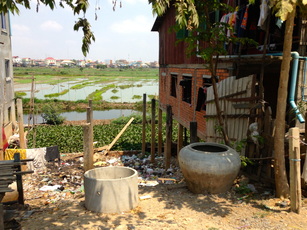
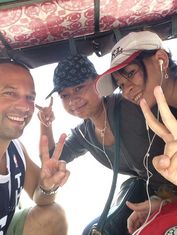
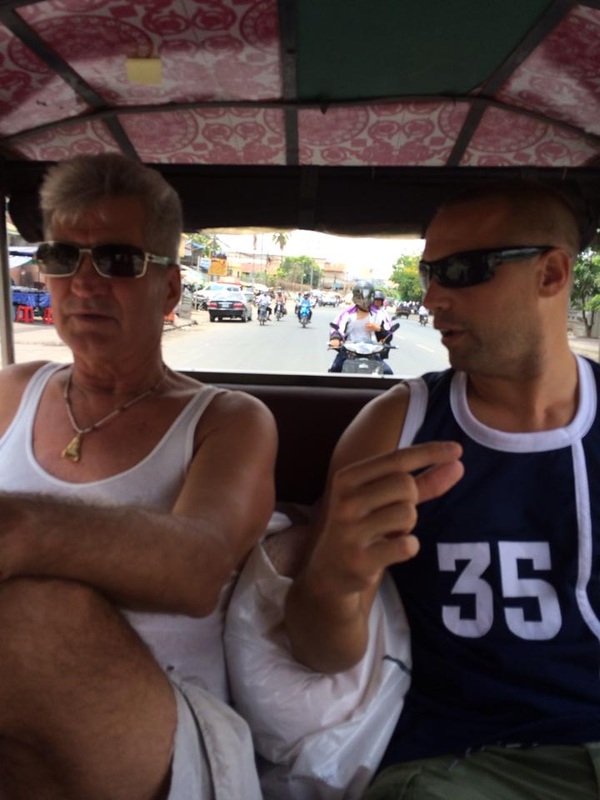
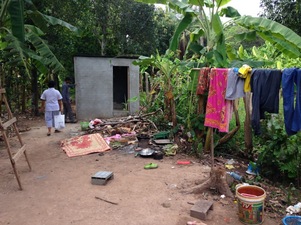
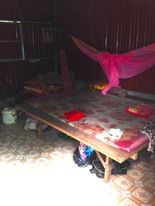
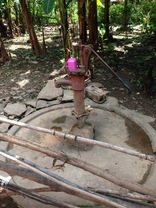
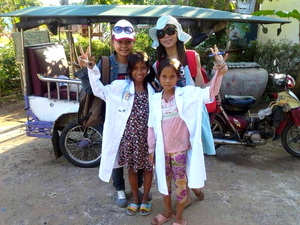
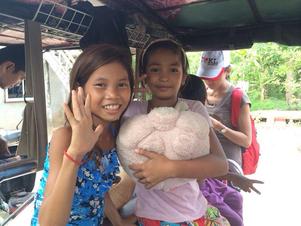
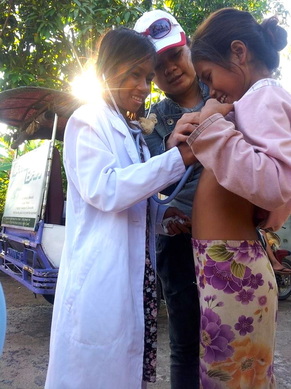
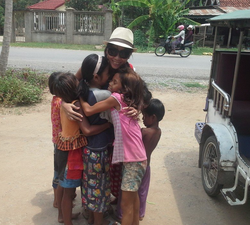
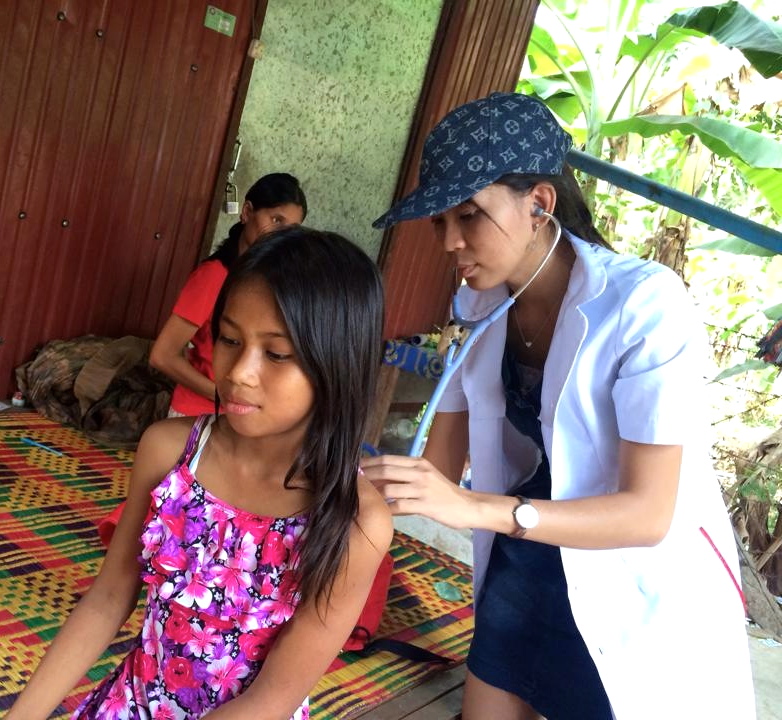
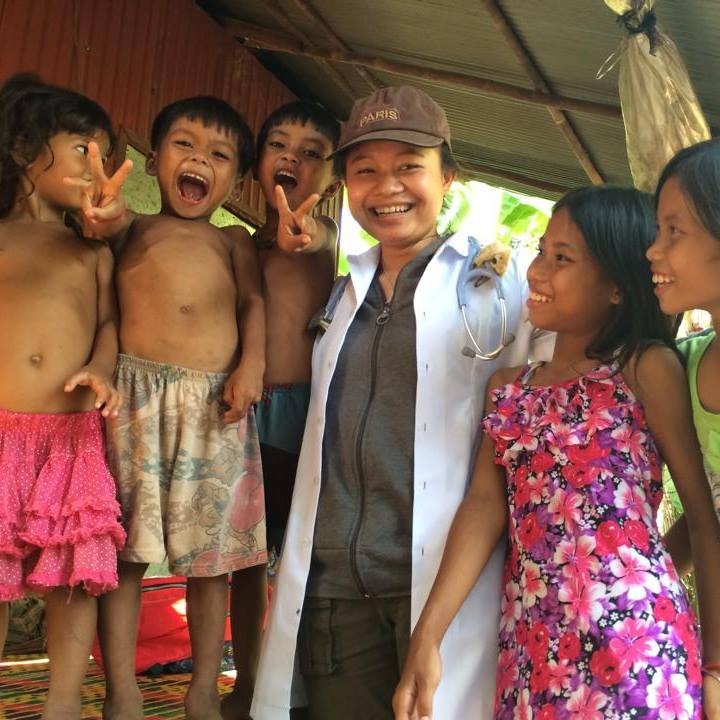
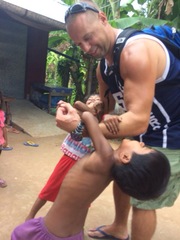
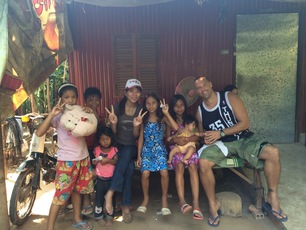
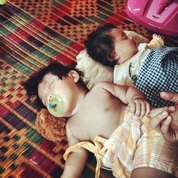
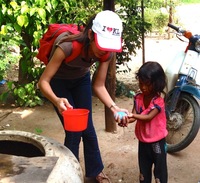
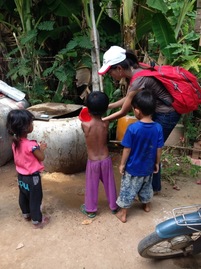
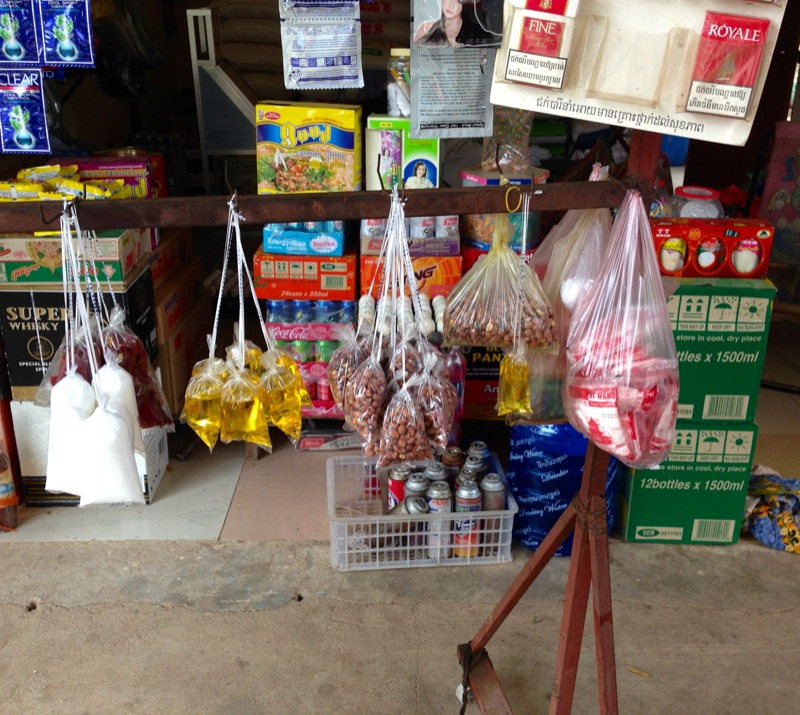
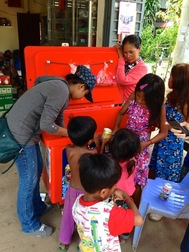
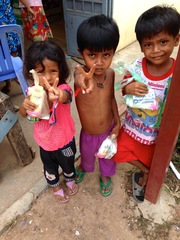
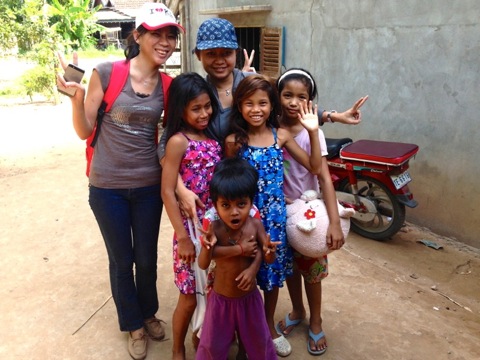
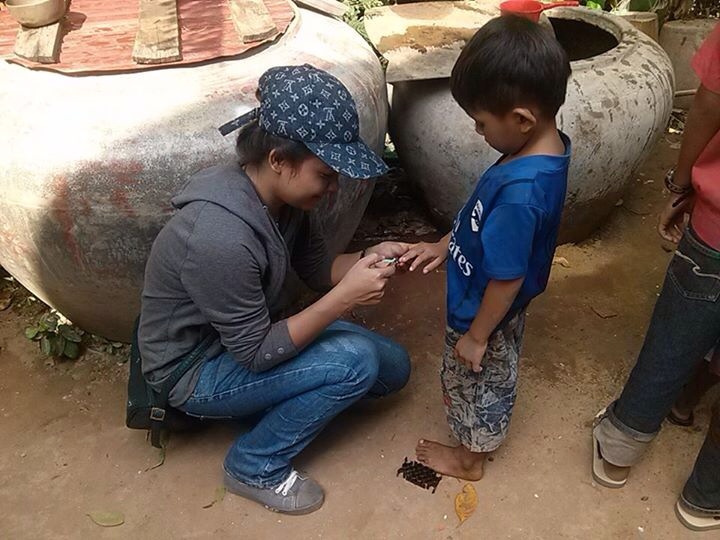
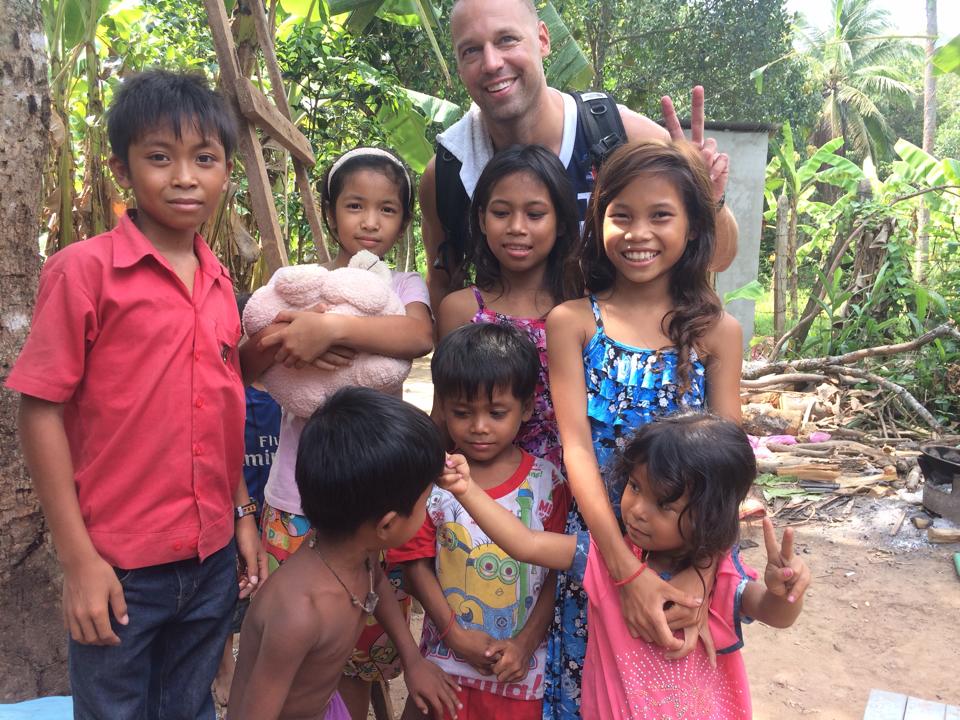
 RSS Feed
RSS Feed